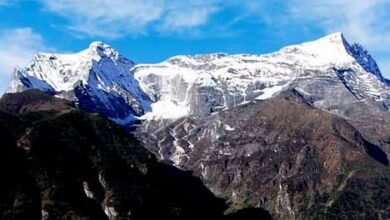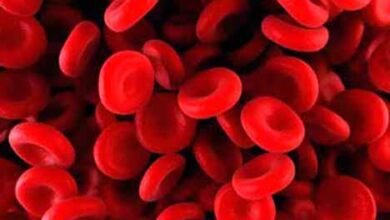
अर्थशास्त्र से संबंधित-78.
| 1. How is India’s economy? = Mixed economy.
2. Which production is a free gift of nature? = Land. 3. Which tax is levied by the state government? = Business tax. 4. Direct Taxes? = Income tax. 5. The largest commercial bank in the country? = State Bank. 6. When was the Securities Regulation Board established in India? = The Year 1988 AD. 7. Who exercises effective control of the stock market? = SEBI. 8. Where does the central government get the most net revenue? = Customs duty. 9. What is the balance of payments related to the import-export of a country? = Trade balance. 10. When was the insurance scheme launched? = The Year 1952 AD. 11. When were the Central Board of Excise and the Board of Direct Production established by dividing the Central Board of Revenue between India? = The Year 1963 AD. 12. To whom are the words Mandadiya and Tejadia related? = Stock market. 13. What kind of country is India from an economic point of view? = Developing. 14. What is Super 301? = Legal Section of US Trade (system of imposing higher customs duty on imports). 15. What is the Hindu growth rate related to? = GDP. 16. What is the meaning of cheap currency? = Reduced rate of interest. 17. To find per capita income, what is the total income divided by? = Total population of the country. 18. Which is the main regulatory authority for insurance companies in India? = ‘IRDA’. 19. In the context of the International Monetary Fund (IMF), what is a quota? = IMF by different countries. The contribution is given to. 20. When is the Economic Survey presented in Parliament every year? = One day before the budget presentation for the coming year. 21. ‘W. E. F. ‘(WEF)? = World Economic Forum. 22. Whose creation is ‘Value and Capital’? = Hixa. 23. Who was appointed the chairman of the Tax Reforms Committee? = Raja Chelliah. 24. Who introduced market law? = J. B. Sec. 25. What is ‘National Income’? = Out of net national production, the income is left by deducting the amount received from indirect taxes and grants. 26. Who calculates the national income in India? = Central Statistical Organization. 27. Open Market Operations is a part of which policy? = Credit Policy. 28. Who publishes the ‘World Investment Report’ (WIR) every year? = UNCTAD-United Nations Conference on Trade and Development). 29. On what basis are the expenditure on ‘Swarna Jayanti Gramin Swarozgar Yojana’ met by the Central and State Governments? Based on = 25:75. 30. ‘Shequel’ is the currency of which country? = Israel. 31. The Khadi and Village Industries Commission was established under which five-year plan? = Under the Second Five-Year Plan. 32. OECD is called? = Organization for Economic Co-operation and Development. 33. The main objective of opening a ‘No Frill’ account is to help which category of customers? = People from weaker sections of society should also be bank account holders. 34. The definition of small-scale industry in India is based on = On the value of an investment for plants and equipment in a unit. ========== ========= ============= 1. भारत की अर्थव्यवस्था कैसी है? = मिश्रित अर्थव्यवस्था. 2. कौन-सा उत्पादन प्रकृति का निःशुल्क उपहार है? = भूमि. 3. कौन-सा कर राज्य सरकार लगाती है? = व्यापार कर. 4. प्रत्यक्ष कर है? = आयकर. 5. देश का सबसे बड़ा वाणिज्यिक बैंक? = स्टेट बैंक. 6. प्रतिभूति विनियम बोर्ड की स्थापना भारत में कब हुई थी? = वर्ष 1988 ई. 7. शेयर बाजार के प्रभावपूर्ण नियंत्रण कौन करता है? = सेबी. 8. केंद्र सरकार को सबसे निवल राजस्व की प्राप्ति कहाँ से होती है? = सीमा शुल्क. 9. किसी देश का आयात-निर्यात से संबंधित भुगतान शेष को कहते है? = व्यापार शेष. 10. बीमा योजना का शुभारंभ कब हुआ था? = वर्ष 1952 ई. 11. भारत में केंद्रीय राजस्व बोर्ड का विभाजन करके केंद्रीय उत्पादन सीमा शुल्क बोर्ड तथा प्रत्यक्ष बोर्ड की स्थापना कब हुई? = वर्ष 1963 ई. 12. मंदडिया व तेजडिया शब्द किससे संबंधित है? = शेयर बाजार. 13. आर्थिक दृष्टि से भारत कैसा देश है? = विकासशील. 14. सुपर 301 क्या है? = अमेरिका व्यापार की कानूनी धारा (आयात पर उच्च सीमा शुल्क लगाने की व्यवस्था). 15. हिन्दू वृद्धि दर किससे संबंधित है? = जीडीपी. 16. सस्ती मुद्रा का अर्थ होता है? = ब्याज की दर कम होना. 17. प्रति व्यक्ति आय ज्ञात करने के लिए कुल आय को किससे भाग दिया जाता है? = देश की कुल जनसंख्या. 18. भारत में बीमा कंपनियों के लिए मुख्य विनियामक प्राधिकरण है? = ‘इरडा‘(IRDA). 19. अन्तर्राष्ट्रीय मुद्रा कोष (IMF) के संदर्भ में कोटा किसे कहते हैं? = विभिन्न देशों द्वारा आई. एम. एफ. को दिए गए अंशदान को. 20. आर्थिक सर्वेक्षण प्रतिवर्ष संसद में कब प्रस्तुत किया जाता है? = आगामी वर्ष के बजट प्रस्तुतीकरण से एक दिन पूर्व. 21. ‘डब्ल्यू. ई. एफ.’(WEF)? = World Economic Forum. 22. ‘Value and Capital’ किसकी रचना है? = हिक्सा. 23. कर सुधार समिति (Tax Reforms Committee) का अध्यक्ष किसे नियुक्त किया गया था? =राजा चेलैया. 24. मार्केट-लॉ का प्रतिपादन किसने किया? = जे. बी. से. 25. ‘राष्ट्रीय आय’ किसे कहते हैं? = शुद्ध राष्ट्रीय उत्पादन में से परोक्ष करों एवं अनुदानों से प्राप्त राशि को घटाने से बची आय को. 26. भारत में राष्ट्रीय आय की गणना कौन करता है? = केन्द्रीय सांख्यिकीय संगठन (Central Statistical Organization). 27. खुले बाजार की क्रियाएं (Open Market Operations) किस नीति का अंग है? =साख नीति का. 28. प्रतिवर्ष ‘विश्व निवेश रिपोर्ट’ (WIR) का प्रकाशन कौन करता है? = अंकटाड (UNCTAD-United Nations Cenference on Trade and Development). 29. ‘स्वर्ण जयन्ती ग्रामीण स्वरोजगार योजना’ पर होने वाले व्यय को केन्द्र एवं राज्य सरकारों द्वारा किस आधार पर पूरा किया जाता है? = 25:75 के आधार पर. 30. ‘न्यू शेकेल’ (Shequel) किस देश की मुद्रा है? = इजराइल. 31. ‘खादी एवं ग्रामीण उद्योग आयोग’ की स्थापना किस पंचवर्षीय योजना के अन्तर्गत की गई थी? = दूसरी पंचवर्षीय योजना के अन्तर्गत. 32. OECD को कहा जाता है? = Organisation for Economic Co-operation and Development. 33. ‘नो फ्रिल’ (No Frill) खाते खोलने का मुख्य उद्देश्य है, ये खाते ग्राहकों के किस वर्ग की सहायतार्थ है? = समाज के कमजोर वर्गों के लोगो को भी बैंक के खाताधारक हो. 34. भारत में लघु उद्योग की परिभाषा किस पर आधारित है? = किसी इकाई में संयंत्रों और यंत्रों के लिए निवेश के मान पर.
|





